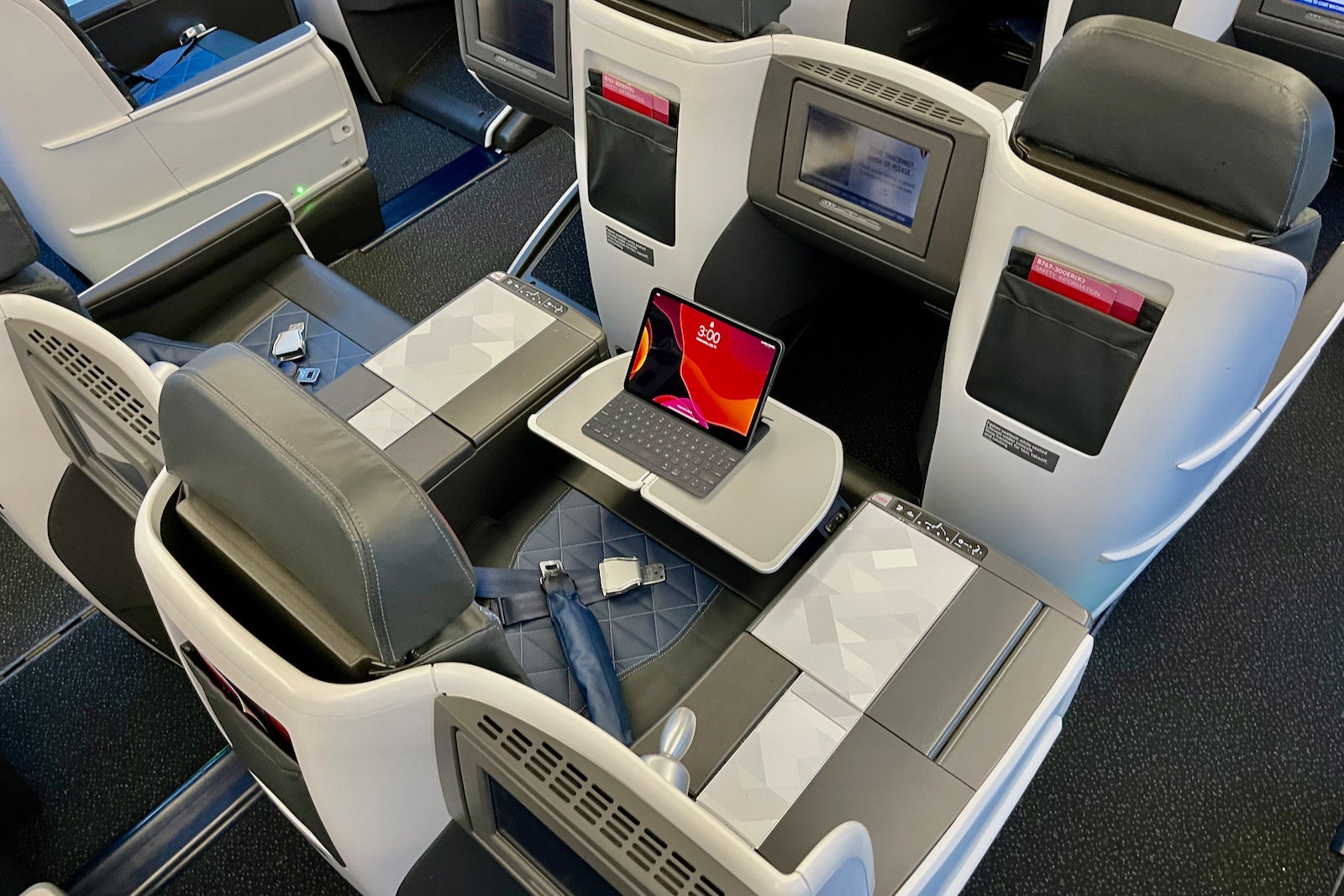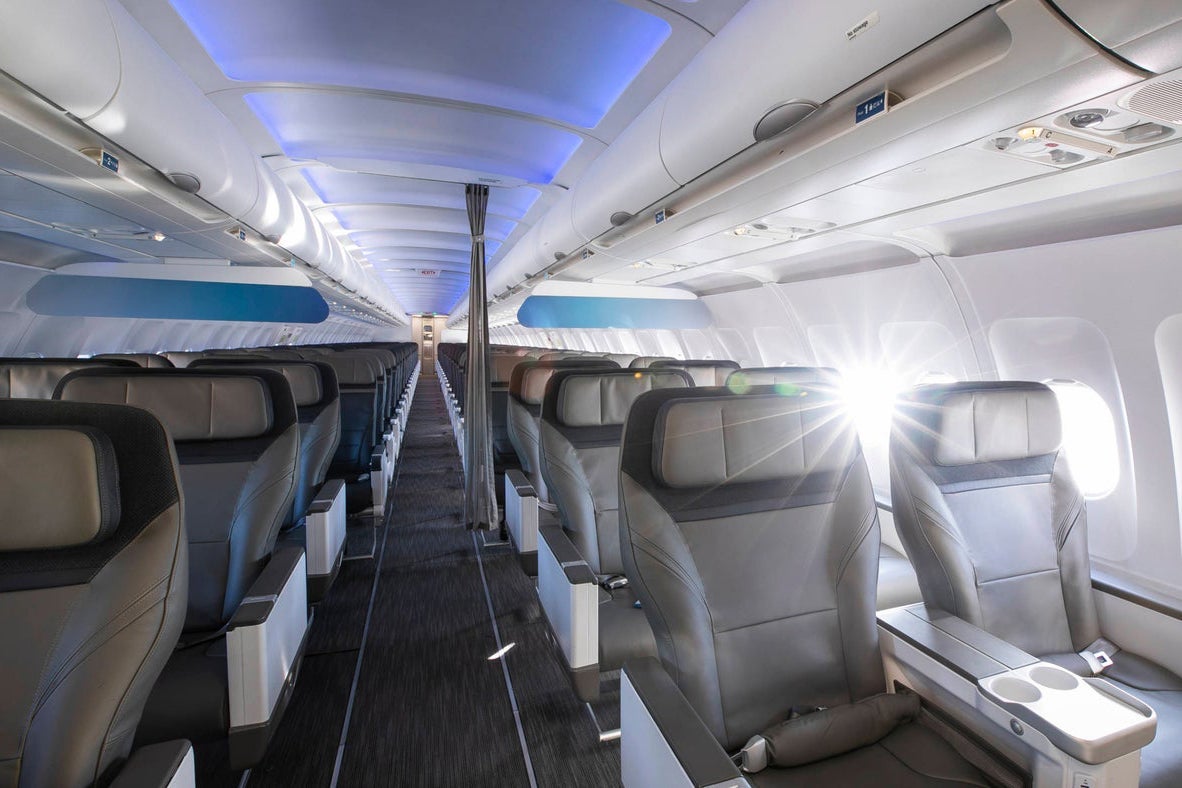Inflight Wi-Fi is getting cheaper across US airlines
Staying connected when flying is getting more affordable and reliable.
When the major U.S. airlines first started installing internet access on their jets back in 2008, a single flight pass could cost as much as $40 (or more) depending on the route, time of day and other factors. The carriers also sold monthly subscriptions for frequent flyers that offered unlimited internet access for a fixed rate.
Over time, the airlines have evolved their Wi-Fi pricing models, and in recent months, they've lowered the rate to one that's actually compelling for leisure flyers to connect.
The latest move comes from Alaska Airlines, which will now offer satellite-based Wi-Fi access for a flat rate of $8 per flight. The cost will no longer vary by distance and other factors.
Nearly 80% of the Alaska fleet is now outfitted with high-speed satellite Wi-Fi provided by Intelsat. (You can find Alaska's satellite internet on all Airbus aircraft and most Boeing 737-900s, as well as select 737-800 and 737 MAX 9.)
The system provides speeds that support streaming across all popular services, such as Netflix, Hulu and YouTube. Alaska will continue to charge a variable price for internet access on its jets that haven't yet been equipped with satellite Wi-Fi.
For those closely following the developments in inflight connectivity, the new $8 price point may ring a bell.
It's the same price that United now charges for Wi-Fi access on all domestic flights. Earlier this year, the Chicago-based carrier simplified the pricing structure with just two price points for all single-use day passes — $8 for MileagePlus members and $10 for those not enrolled in the airline's loyalty program.
Southwest also charges $8 for internet access. When it introduced onboard internet access in 2009, the carrier had an introductory flat rate of $5, which was raised to $8 shortly thereafter.


While competitive pressure is seemingly the reason for Alaska lowering its price, it's fair to wonder if that the same pressure might eventually make Wi-Fi access free at some point in the future.
JetBlue Airways is famous for its free fleet-wide Wi-Fi, while Delta Air Lines CEO Ed Bastian plans to make connectivity free as well.
In early 2019, Bastian laid out a grand plan for modernizing Delta's inflight connectivity, which includes faster Wi-Fi that would eventually become free.
Related: Putting Delta's new blazing-fast inflight Wi-Fi to the test
Since then, the Atlanta-based carrier trialed free Wi-Fi on a handful of flights, but it's not yet ready to enable complimentary access network-wide. In the meantime, Delta's new, faster internet connection (which is now available for more than 50% of domestic enplanements) is available for $5 per device.
Interestingly, internet access on American Airlines continues to be quite expensive. On a recent transcontinental flight from New York to Los Angeles, a single-use flight pass was going for $29.
Before the pandemic, there were reports that American was considering offering free onboard internet access, but there hasn't been any official confirmation from the carrier.
TPG featured card
at Capital One's secure site
Terms & restrictions apply. See rates & fees.
| 5X miles | Earn 5X miles on hotels, vacation rentals and rental cars booked through Capital One Travel |
| 2X miles | Earn unlimited 2X miles on every purchase, every day |
Pros
- Stellar welcome offer of 75,000 miles after spending $4,000 on purchases in the first three months from account opening. Plus, a $250 Capital One Travel credit to use in your first cardholder year upon account opening.
- You'll earn 2 miles per dollar on every purchase, which means you won't have to worry about memorizing bonus categories
- Rewards are versatile and can be redeemed for a statement credit or transferred to Capital One’s transfer partners
Cons
- Highest bonus-earning categories only on travel booked via Capital One Travel
- LIMITED-TIME OFFER: Enjoy $250 to use on Capital One Travel in your first cardholder year, plus earn 75,000 bonus miles once you spend $4,000 on purchases within the first 3 months from account opening - that’s equal to $1,000 in travel
- Earn unlimited 2X miles on every purchase, every day
- Earn 5X miles on hotels, vacation rentals and rental cars booked through Capital One Travel
- Miles won't expire for the life of the account and there's no limit to how many you can earn
- Receive up to a $120 credit for Global Entry or TSA PreCheck®
- Use your miles to get reimbursed for any travel purchase—or redeem by booking a trip through Capital One Travel
- Enjoy a $50 experience credit and other premium benefits with every hotel and vacation rental booked from the Lifestyle Collection
- Transfer your miles to your choice of 15+ travel loyalty programs
- Top rated mobile app


